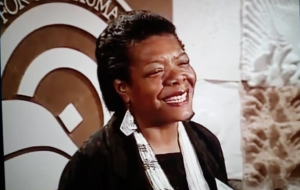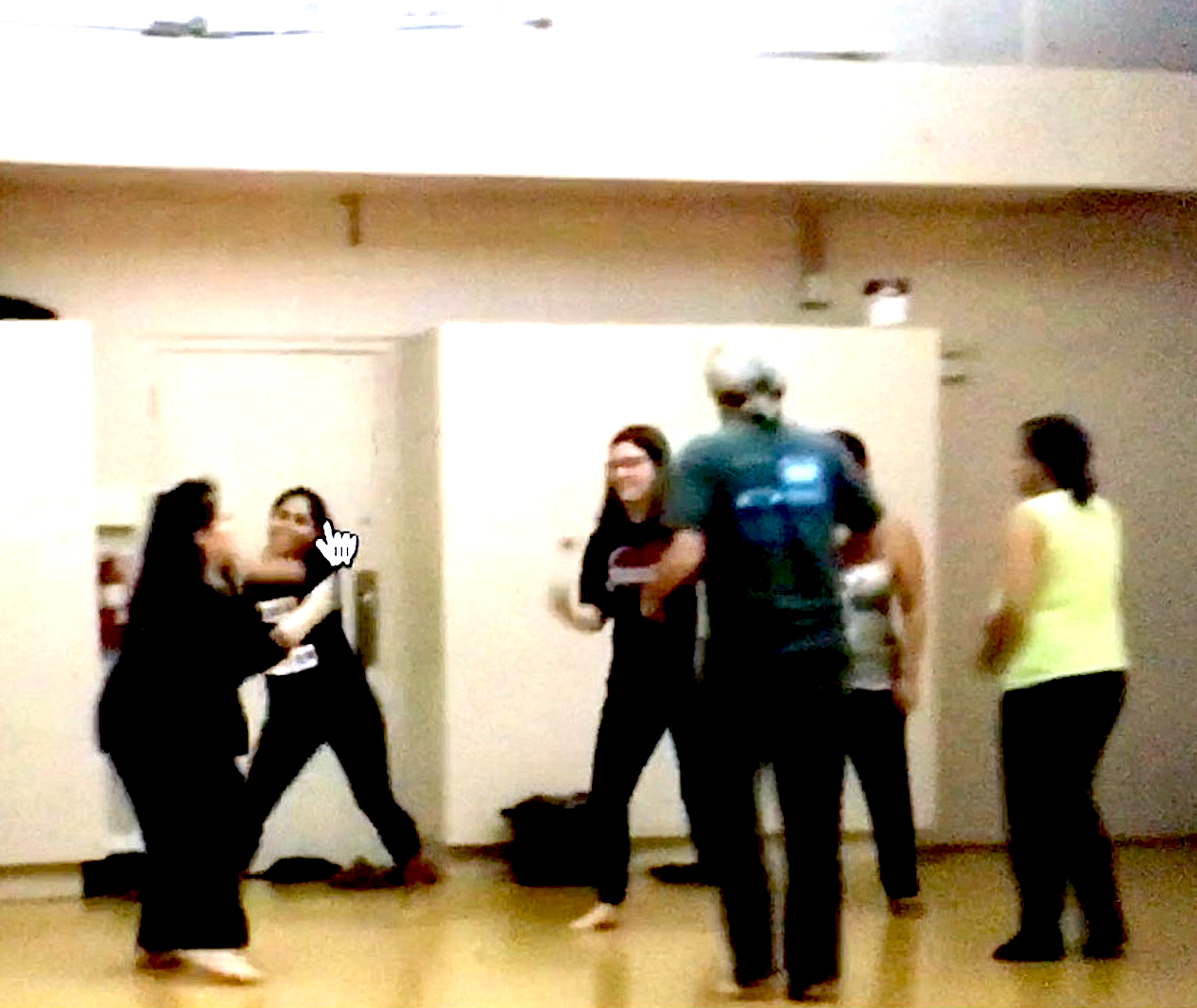 A daily reminder that we are equals in the eyes of love … “no human being can be more human than another human being.” We remember together that each of us carries the weight of oppression, the weight of injustice, the weight of homelessness, the weight of hunger, the weight of any ism that feels like it is flourishing in our fear. A simple look at the world from the POV to Love expanding outward from our Heart center cutting through the veil.
A daily reminder that we are equals in the eyes of love … “no human being can be more human than another human being.” We remember together that each of us carries the weight of oppression, the weight of injustice, the weight of homelessness, the weight of hunger, the weight of any ism that feels like it is flourishing in our fear. A simple look at the world from the POV to Love expanding outward from our Heart center cutting through the veil.
Maya Angelou’s reading of her poem “For Old Black Men” with Paul Laurence Dunbar’s 1892 poem “We wear the Mask” brings tears to my eyes every time.
Have a listen and when you are done, let us know how you feel.
Does it make you want to stand up and walk forward “Bringing peace in your heart wherever you go?” or something else.
For me. It touches a part of my soul that knows the debt of honor we owe to those who day in and day out do the work necessary to transform consciousness. I celebrate all of them, and all of you. Take this moment to honor all the work and heart break and dreams that has lead to this moment.
“We smile, but oh my God….”
With respect and honor and love.
https://www.youtube.com/watch?v=syGGVZ_ILAI
What we do to one, we do to ourselves. Mels Love Land asks the questions …. Why not love thy neighbor as thyself? Why not see beyond the mask.
poems text follows:
Maya Angelou
poem a combination of two artists work spoken word…
It shades our cheeks and hides our eyes.
This debt we pay to human guile
With torn and bleeding hearts…
We smile and mouth the myriad subtleties.
Why should the world think otherwise
In counting all our tears and sighs.
Nay let them only see us while
We wear the mask.
Our tears to thee from tortured souls arise
And we sing Oh Baby doll, now we sing…
The clay is vile beneath our feet
And long the mile
But let the world think otherwise.
We wear the mask.
I almost laugh myself to death.
My life has been one great big joke!
A dance that’s walked a song that’s spoke.
I laugh so hard HA! HA! I almos’ choke
When I think about myself.
The child I works for calls me girl
I say “HA! HA! HA! Yes ma’am!”
For workin’s sake
I’m too proud to bend and
Too poor to break
So…I laugh! Until my stomach ache
When I think about myself.
My folks can make me split my side
I laugh so hard, HA! HA! I nearly died
The tales they tell sound just like lying
They grow the fruit but eat the rind.
Hmm huh! I laugh uhuh huh huh…
Until I start to cry when I think about myself
And my folks and the children.
Their flesh count every plank,
The slats leave dents of darkness
Deep in their withered flank.
And they gnarled like broken candles,
All waxed and burned profound.
They say, but sugar, it was our submission
that made your world go round.
I see the auction block
The chains and slavery’s coffles
The whip and lash and stock.
That shred my fact and sound
They say, but sugar, it was our submission
that made your world go round.
They shuffle through their dreams
They stepped ’n fetched a country
And wrote the blues in screams.
I understand their meaning,
It could an did derive
From living on the edge of death
They kept my race alive
By wearing the mask! Ha! Ha! Ha! Ha! Ha!
Notes:
It shades our cheeks and hides our eyes—
This debt we pay to human guile;
With torn and bleeding hearts we smile,
And mouth with myriad subtleties.
In counting all our tears and sighs?
Nay, let them only see us, while
We wear the mask.
To Thee from tortured souls arise.
We sing, but oh, the clay is vile
Beneath our feet, and long the mile;
But let the world think otherwise,
We wear the mask.

